Investigating supermarkets in Australia
The University of Newcastle (UON), Australia
3rd-year student in the Department of Business Informatics:YAMAMOTO Miho
Study Abroad Period: August 26 – September 27, 2024
TOBITATE! Study Abroad Initiative
I participated in a language study program at the University of Newcastle, located in New South Wales on the east coast of Australia. While studying English at the university, I also conducted research on Woolworths, one of the major supermarket chains in Australia.
Although English is the official language in Australia, I found it difficult to understand at times because the pronunciation differs somewhat from what I had learned in Japan.
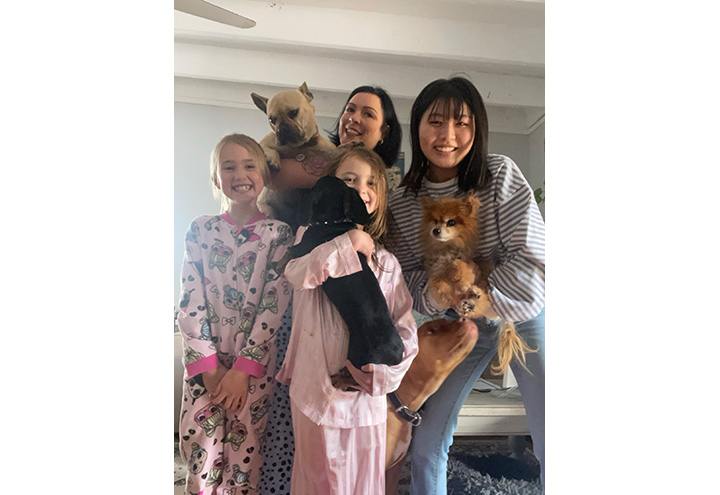
With my host family and their dogs.
Before introducing the details of the training program, I would like to briefly introduce Australia.
The first topic is about food. Unlike in Japan, rice is not the staple food in Australia; instead, potatoes are commonly eaten. Main dishes usually come with sides like French fries, salad, or mashed potatoes made from pureed potatoes.
At lunchtime, fruits like apples and bananas, as well as treats like cupcakes, are always included. Smaller apples are often packed whole in lunch boxes, and people eat them by biting directly into the fruit. At first, I found this a bit strange, but by the second week, I was able to eat apples whole quite neatly.
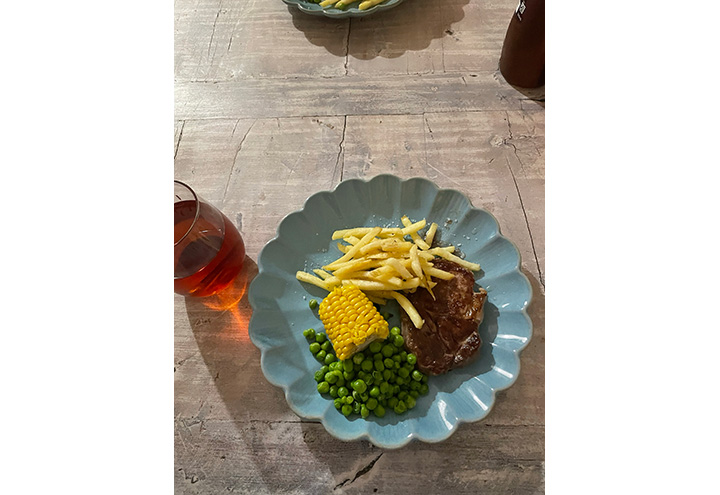 The dinner my host mother made for me. | 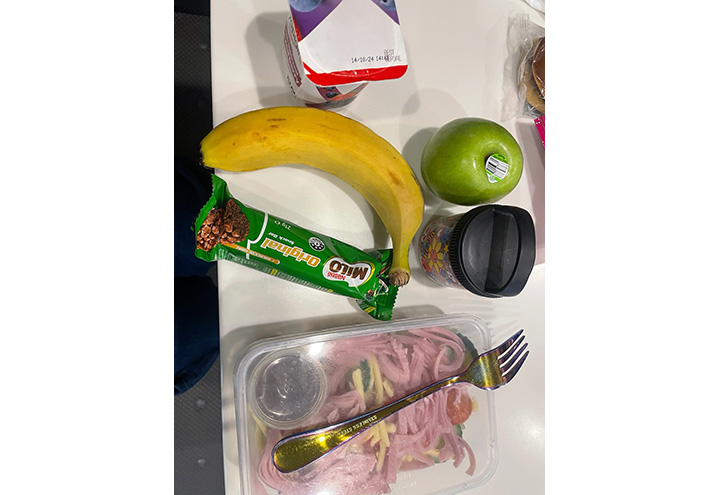 The lunch my host mother made for me. |
The second point is about public transportation. I took the bus every day to get from my host family’s home to the university. In Japan, buses stop automatically when you are waiting at the bus stop, but in Australia, you have to raise your hand to signal the driver to stop. Inside the bus, there were no monitors showing the next stop, so until I got used to it, I had to constantly check Google Maps.
The third point is about the climate. Since Australia has the opposite seasons from Japan, August and September are summer in Japan but winter in Australia. When I think of winter in Japan, I imagine it being very cold all day, but in Australia, it was cold in the mornings and evenings while it was warm during the day. Although it was warm, the low humidity made it very comfortable. However, because of the dryness, my skin became very dry.
Now, I will briefly explain what I studied in Australia. Since I participated in a language training program, I studied English at the University of Newcastle from 9:30 a.m. to 3:30 p.m. on weekdays. In my free time after classes, I visited Woolworths to conduct research on supermarkets. On weekends, I spent fulfilling days going out with my host family or sightseeing with friends.
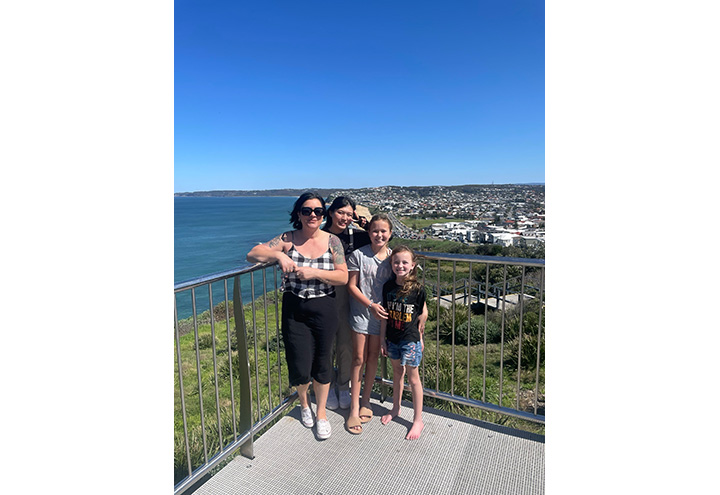 Newcastle Beach | 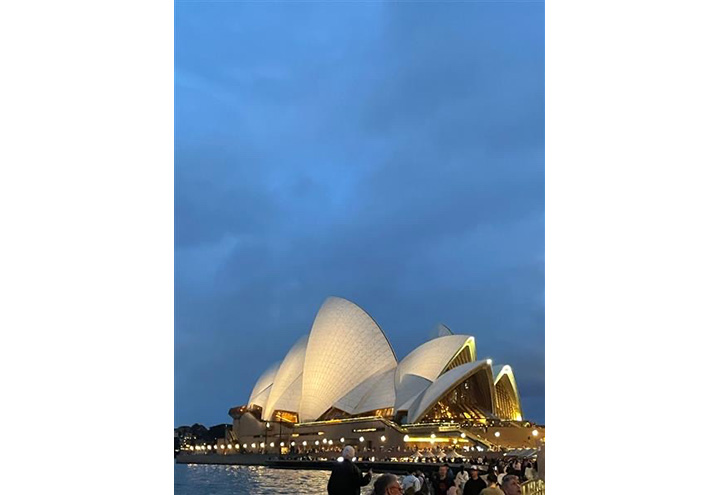 オペラハウス |
I wondered how supermarkets in Australia differ from those in Japan, so I actually visited and used one. At first glance, Australian supermarkets looked almost the same as Japanese ones from a customer’s perspective. However, upon closer inspection, I noticed differences such as the products and prices, as well as the fact that most checkout counters were self-checkouts. Some of these self-checkouts were card-only, which was also different from what I usually see in Japan.
For my research on environmental issues, I mainly focused on Woolworths. While there were not many obvious differences from a customer’s point of view, I was able to observe recycling bins and efforts to reduce plastic bags, which are also common in Japan. In the future, I would like to investigate in more detail the differences among supermarkets within Australia as well.
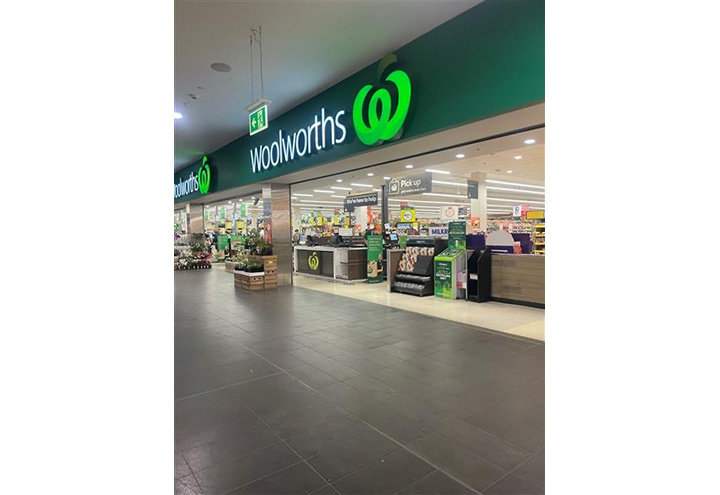
Woolworth in Newcastle
If I have another opportunity to study abroad, I would like to further investigate the things I was not able to explore this time. This experience changed my perspective on overseas and made me want to put more effort into intercultural exchange in the future.
About translation
Translation is automated by computer,it is not necessarily guaranteed to be accurate.
Please be advised that there may be some difference between the original Japanese site and the Google translation.
Thank you for your understanding.